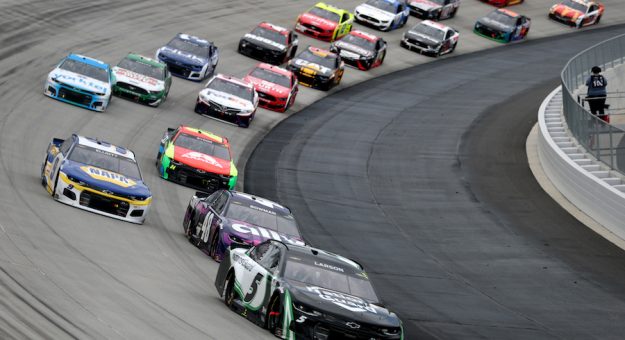WILMETTE, Ill. — As the current year takes the checkered flag and the new year approaches the starting grid, the sports industry moves ahead with a positive outlook.
This month, we will reflect on the challenges of the past two years and highlight the changes ahead.
During the pandemic, each sports sector tackled the situation uniquely.
The most forward-looking organizations considered a broad range of potential solutions, including monetization of data pertaining to spectators, driver and team performance and sports betting; novel real estate plays; and unique partnerships with technology companies to help elevate the fan experience.
Racing, along with other sports, pivoted and figured out how to address the challenges.
Schedules were adjusted, races were moved, at-track weekends shortened and online sim racing filled a void. Changes were bold but well received and had the view of many that they had to be made.
Financial liquidity was critical — the major sources of revenue (ticketing, sponsorship and concessions) were almost non-existent.
Sponsors continued to back the sport, reflecting positively on its future.
Media contracts were honored by broadcasters with adjustments made by both sides. Ratings and attendance were relatively consistent and will serve as a solid basis for the next set of negotiations. This will probably include both traditional providers and streaming platforms.
Government assistance programs through loans provided relief for racing businesses and payroll assistance helped keep checks flowing to employees. Race teams and tracks adjusted workforce size and tried to keep essential personnel employed.
There was the ancillary impact to communities that typically host races — tourism revenue and related taxes did not materialize affecting the livelihood of hospitality businesses.
The importance of social justice went mainstream, uniting most aspects of the racing community. This issue is complex — the current moment is really a movement that develops leaders and bonds spectators with select brands.
Tracks and teams expanded technology and the use of digital to increase fan engagement. Streaming of local races went mainstream and boomed as fans could not attend many races in person.
Motorsports organizations invested in digital infrastructure, people and processes pertaining to data. Entities built broader business acumen across their various departments, along with considering nontraditional partnerships that bring outside perspectives.
Advertising had a larger online presence and content creation by drivers was center stage throughout social media platforms.
Mobile sports betting developed into a meaningful revenue stream and new partnerships took hold.
It has the potential to transform the at-track experience. As it rolled out, entities continued to assess how it connected with fans. The key component was data and racing is all about that.
The most successful businesses were bold in their approach Like the race tracks, they used a challenging business environment as an opportunity to try new things.
– Speedway Motorsports, LLC recently announced plans to buy Dover Motorsports, Inc.
Based in Charlotte, N.C., Speedway Motorsports owns eight racing facilities and sells racing-related souvenirs, manufactures U.S. Legend Cars and produces and broadcasts motorsports programming via Performance Racing Network.
Dover Motorsports operates Dover Int’l Speedway and Nashville Superspeedway.
Advisers for DVD included Raymond James & Associates Inc. and Faegre Drinker Biddle & Reath LLP. Parker Poe Adams & Bernstein LLP worked with Speedway Motorsports.
The deal has an equity value of $131.5 million. Speedway Motorsports offered DVD $3.61 per share for all outstanding shares of DVD stock. This represents a $1.33 premium or 58 percent premium over the prior day’s closing price of $2.28 per share.
DVD shares were trading as low as $1.07 at the start of the shutdown in April 2020.
Speedway Motorsports went private in October 2019, in almost an $800 million transaction. Its shares had previously been publicly traded since 1998.
International Speedway Corp. also went private in October 2019 with a $2 billion deal.
With DVD being sold, there will be no publicly traded companies on the major exchanges that operate race tracks.
During the early 2000s, there were five publicly traded motorsports track operators. They were International Speedway Corp., Speedway Motorsports Inc., Dover Motorsports, Penske Motorsports Inc. and the Grand Prix Ass’n of Long Beach.
Mergers among motorsports companies have thinned the herd. Penske Motorsports and DVD acquired GPALB, ISCA bought Penske Motorsports and now Speedway Motorsports has merged with DVD. ISCA and SMI both went private.
Part of the corporate financial life cycle may involve private companies going back to the public markets. Entities may do this for liquidity purposes or private equity cashing out at the right price.
Investment bankers will be part of these decisions on whether to take the green flag back to the capital markets.
